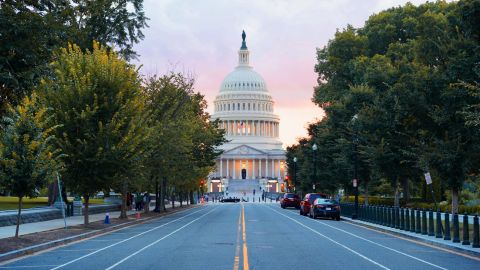ASBMB makes recommendations to support bioeconomy
The American Society for Biochemistry and Molecular Biology last week sent 11 recommendations to the White House Office of Science and Technology Policy related to biotechnology and biomanufacturing.
The society’s Jan. 26 letter advocated for:
-
Enacting federal immigration reform to attract and retain foreign talent
-
Supporting STEM students at minority-serving and rural institutions via outreach and funding
-
Improving access to data and technologies
-
Requiring a gold standard for -omics data collection, reporting, analysis and sharing
In September, President Joe Biden issued an executive order outlining federal biotechnology and biomanufacturing goals. In December, the OSTP issued a request for public input, to which the ASBMB responded. Sarina Neote, ASBMB’s public affairs director, said the society has a history of advocating for policies that ensure a diverse and inclusive workforce as well as equitable and accessible data practices.
"Biochemistry and molecular biology underlie biotechnology and biomanufacturing, and our members are uniquely suited to contribute to the formulation of policies relating to talent recruitment and training as well as data collection and access,” Neote said.
The ASBMB recommended broad federal immigration reform to expand the biotechnology and biomanufacturing workforce. According to numerous studies, international scientists are more likely to engage in STEM entrepreneurship, patent new technology and produce more innovative research.
“The OSTP must clearly communicate the importance of attracting international talent and advocate for reducing visa restrictions for international students and scholars to train in the U.S. as well as increasing the retention of those students and scholars in the U.S. workforce,” the society wrote.
The OSTP specifically asked about strategies to broaden participation in the bioeconomy. The ASBMB recommended conducting outreach to minority-serving and rural colleges and universities and promoting biomanufacturing and biotechnology certificate programs.
Furthermore, the ASBMB suggested creating a research training program, similar to the successful Maximizing Access to Research Careers at the National Institutes of Health. Such a program would expose members of underrepresented groups to biotechnology and biomanufacturing careers via internships at the undergraduate and graduate levels.
The ASBMB focused the remainder of its recommendations on the following three shortcomings: lack of basic resources such as internet access at minority-serving and rural institutions, lack of cutting-edge -omics technologies at these institutions, and lack of tools across the entire scientific community to access and interpret data in sharing repositories.
The ASBMB emphasized that improving access to scientific data and the technologies that generate it — specifically at minority-serving, rural and emerging research institutions — is essential. The society wrote: “Federal agencies must do everything that they can to help (these institutions) update their technology infrastructure to support innovative data ecosystems for the U.S. bioeconomy.”
In addition, the ASBMB called for a gold standard for data collection, reporting, analysis and nomenclature due to the variable quality of information currently in -omics repositories. It also recommended requiring researchers to share a reasonable degree of metadata, such as experimental design and details, along with all deposited -omics data to provide experimental context to other researchers. However, the ASBMB emphasized that the NIH’s new Data Management and Sharing policy should not place undue burden on scientists and laboratories.
Finally, the field lacks tools and software to retrieve data from data repositories, hindering the scientific community from collaborating widely, the society said.
The bioeconomy initiative is directly relevant to ASBMB members, Neote said, “because they work in and train workers in healthcare, climate, energy, agriculture and other sectors.”
She concluded: “We are encouraged by OSTP’s efforts to make diversity, equity, accessibility and inclusion pillars of the imminent biotechnology industrial revolution.”
Enjoy reading ASBMB Today?
Become a member to receive the print edition four times a year and the digital edition monthly.
Learn moreGet the latest from ASBMB Today
Enter your email address, and we’ll send you a weekly email with recent articles, interviews and more.
Latest in Policy
Policy highlights or most popular articles

Councilors advocate for science on Capitol Hill
ASBMB Councilors meet with their elected officials to advocate for basic scientific research funding and training the next generation of scientists.

Hope for a cure hangs on research
Amid drastic proposed cuts to biomedical research, rare disease families like Hailey Adkisson’s fight for survival and hope. Without funding, science can’t “catch up” to help the patients who need it most.

Supporting science through advocacy and community building
ASBMB calls on scientists to take action as funding cuts and policy shifts threaten the U.S. research enterprise, emphasizing the power of community advocacy and persistence in protecting the future of science.

Seven steps to advocating in your home state
Find out how to schedule, prepare for and conduct a productive district office meeting to communicate the importance of fundamental scientific research funding to your representatives.

ASBMB members call for funding and agency support amidst uncertainty
In 60 meetings on Capitol Hill, scientists urge legislators to reaffirm support for scientific innovation

Embrace your neurodivergence and flourish in college
This guide offers practical advice on setting yourself up for success — learn how to leverage campus resources, work with professors and embrace your strengths.

